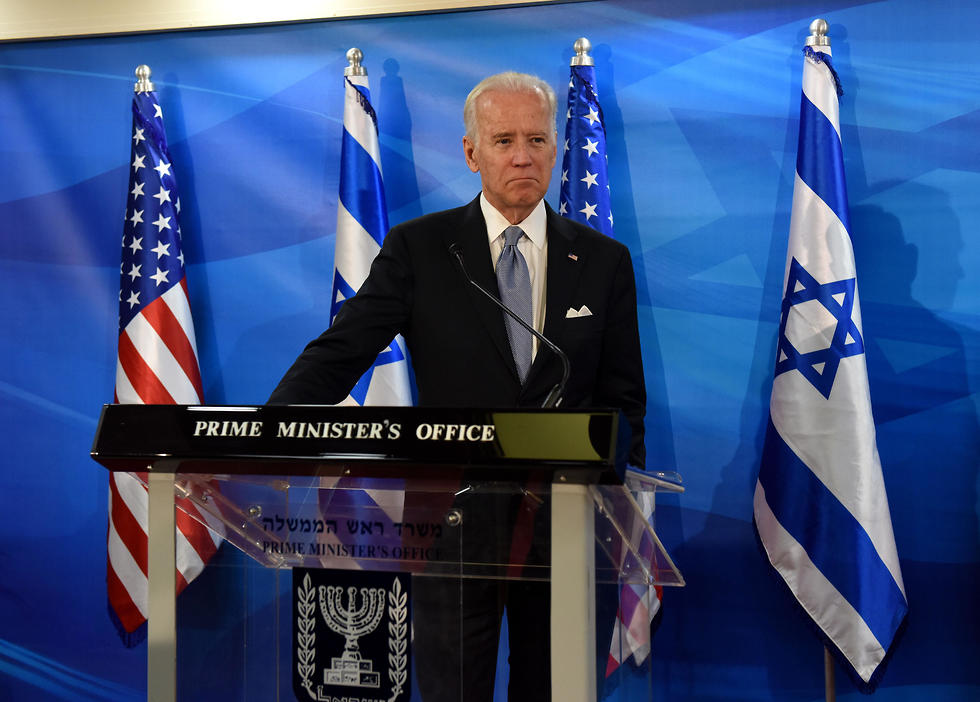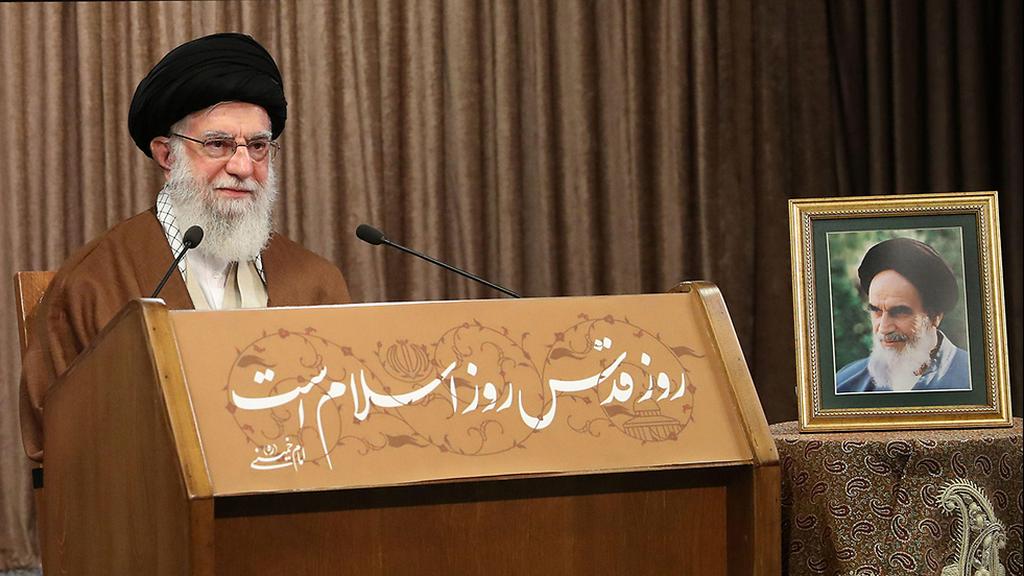Getting your Trinity Audio player ready...
The two main candidates for the U.S. presidency, Donald Trump and Joe Biden, have announced their intention to reach a deal with Iran regarding its nuclear program.
Since exiting the nuclear deal in May 2018, Trump has said that he is open to renegotiating the agreement with the Islamic Republic regime.
5 View gallery
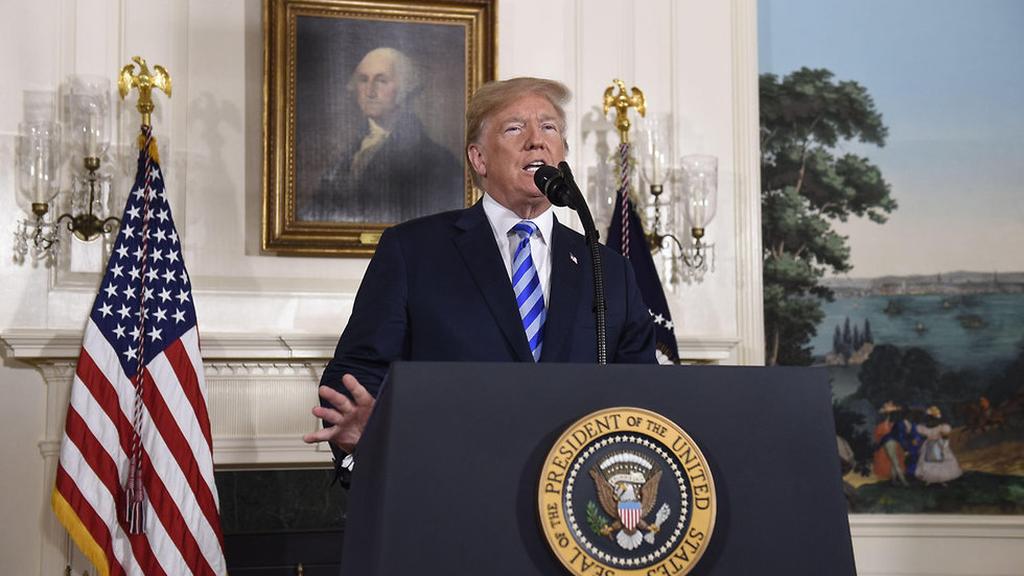

U.S. President Donald Trump announces he is pulling out of the Iran nuclear deal, May 2018
(Photo: AFP)
Biden, his Democratic rival and former vice president, declared that he plans to also return to an arrangement on the matter and even base it on future planned agreements, only if Tehran returns to meeting its obligations.
The assumption of both candidates is that Iran will eventually return to the negotiating table.
Trump still believes that the policy of "maximum pressure" will force Tehran to give in to American demands.
In contrast, Biden wishes to go with a more conciliatory approach and strengthen U.S. cooperation with its allies to save the nuclear deal.
Although a possible breakthrough on the issues cannot be ruled out completely, it is doubtful that the U.S. and Iran will be able to reach a new agreement whoever ends up sitting in the White House - and the chances of a deal being struck before the November 2020 elections are even slimmer.
The U.S. is currently too embroiled with domestic issues, while Iran prefers to wait for the November election results before examining a change in its policy.
However, it is possible that even after the elections, whatever the final result, the Islamic Republic will refuse to sign up to another a revised agreement.
5 View gallery
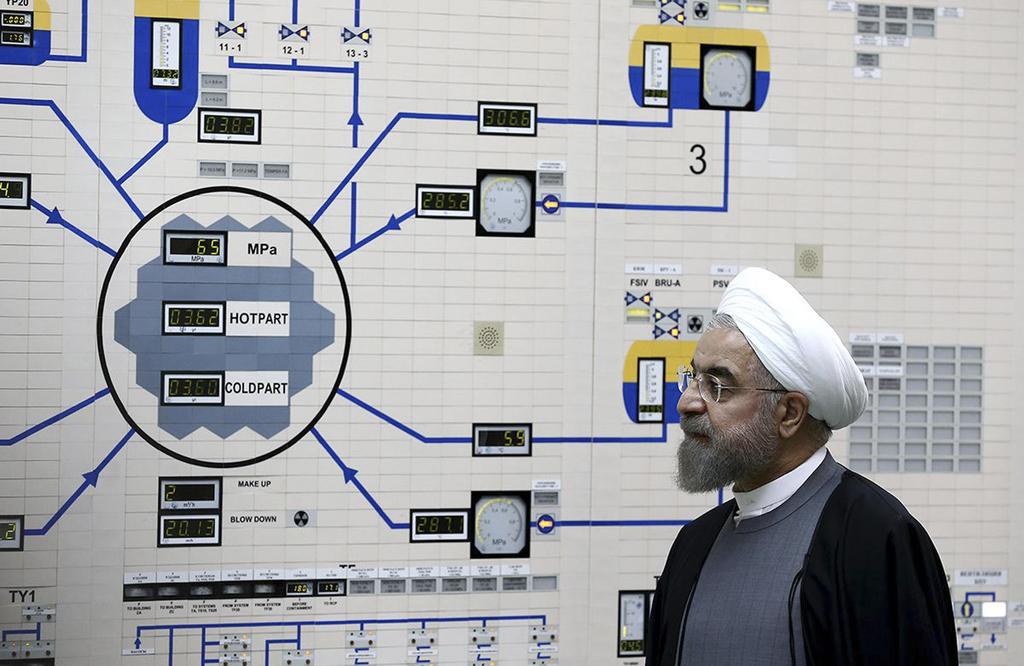

Iranian President Hassan Rouhani inspecting a nuclear facility near Tehran
(Photo: AP)
Though negotiations between Iran and the P5+1 (China, France, Russia, the UK and the U.S., plus Germany) through 2012-2015 showed Tehran is willing to take a more pragmatic approach, developments since then cannot be ignored.
Hassan Rouhani's election to the presidency in 2013 and the transfer of responsibility for the nuclear deal negotiations from Supreme Council to Foreign Minister Mohammad Javad Zarif created an opportunity to push a deal forward under the backing of Iranian Supreme Leader Ali Khamenei.
Technological advancements with the Islamic Republic also helped, with Iran able to temporarily freeze its enrichment of uranium without completely abandoning its military capabilities and the Obama administration's historic recognition that Tehran has the right to enrich.
5 View gallery
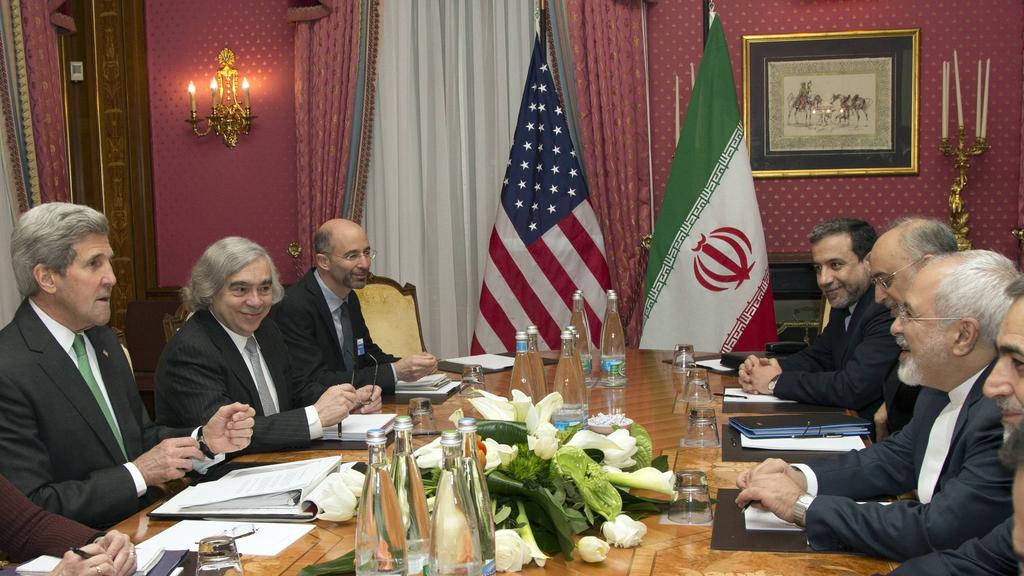

Then-U.S. Secretary of State John Kerry and Iranian Foreign Minister Mohammad Javad Zarif during the 2015 nuclear deal talks
(Photo: AP)
But over the past two years, with mounting pressure from home and abroad, the Iranian political scene has become more radicalized under the leadership of Khamenei, who has worked to strengthen conservative rule over the country's institutions.
Also increased was the involvement of the Revolutionary Guard Corps in matters of state. The force has been exploiting the criticism leveled at Rouhani for conciliatory policies that saw Iran sign the nuclear deal, accusing him of making painful compromises with nothing in return.
Trump's decision to back out of the nuclear deal helped reinforce the notion in Iran that the U.S. cannot be trusted, and that the agreement only intended to prepare the groundwork for Iranian regime change.
Nearly a decade after he agreed to enter talks with the "Great Satan," it is unlikely Khamenei will be convinced to return once again to the table.
At age 81, he is nearing the end of his rule and he is troubled not only by the immediate challenges within Iran, but his legacy as well.
It is doubtful that the Iranian supreme leader wants to go down in the history books as a man who agreed to further concessions, especially after the nuclear agreement did not produce the desired results for him, and without any real ability to ensure that a new deal succeeds in producing any future changes in White House policy.
Iran and the U.S. will make the best use of the bargaining chips they have acquired over the past years to reach an agreement that both will find more palatable.
But if the U.S. decides to abandon the restrictions against Iran, it will find it hard to shape a favorable deal in the future.
In any event, it is right that both presidential candidates formulate an alternative plan to deal with the Iranian nuclear threat and are prepared for Tehran's refusal to even return to the negotiating table, let alone sign a new and improved agreement.
Dr. Raz Zimmt is a research fellow and Iran specialist at the Institute for National Security Studies at Tel Aviv University


